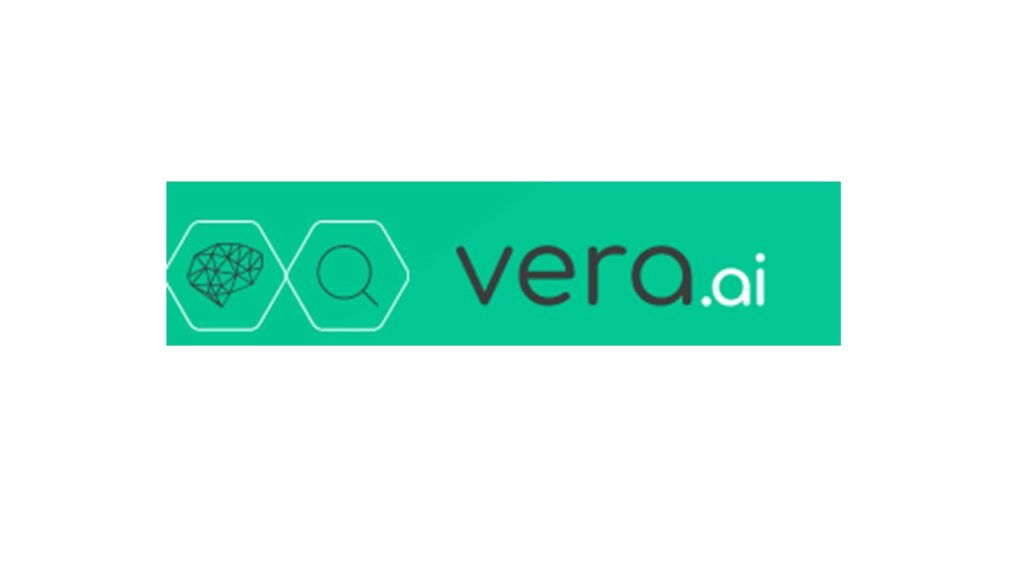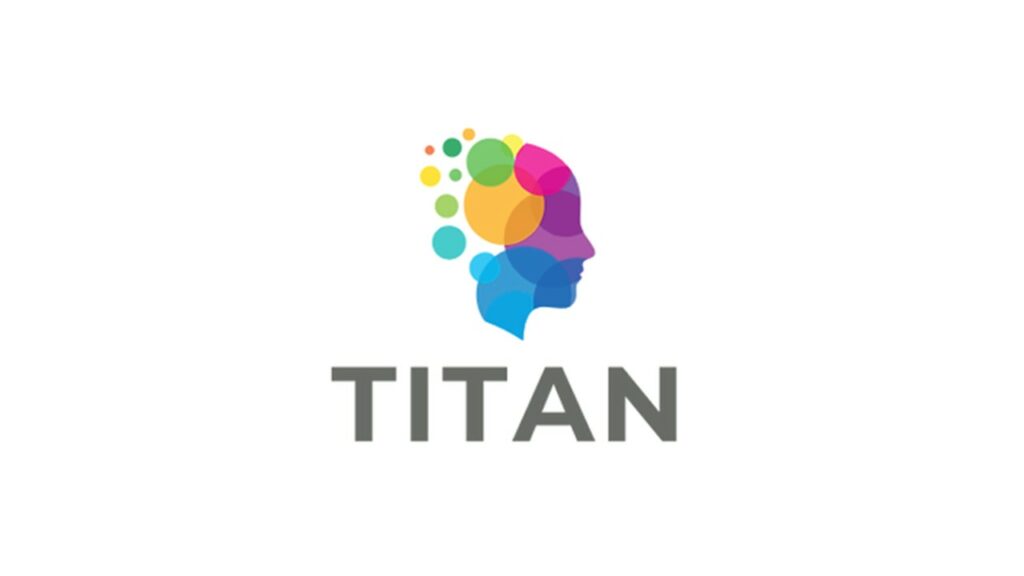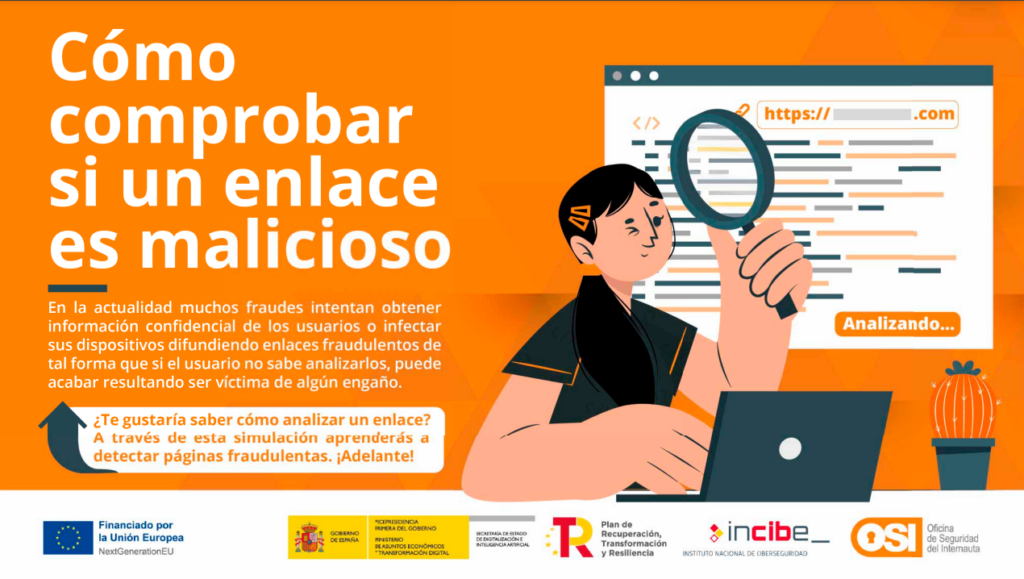
Cómo comprobar si un enlace es malicioso (INCIBE)
Simulación orientada a la detección de prácticas fraudulentas. INCIBE (Instituto Nacional de Ciberseguridad) (Cita)
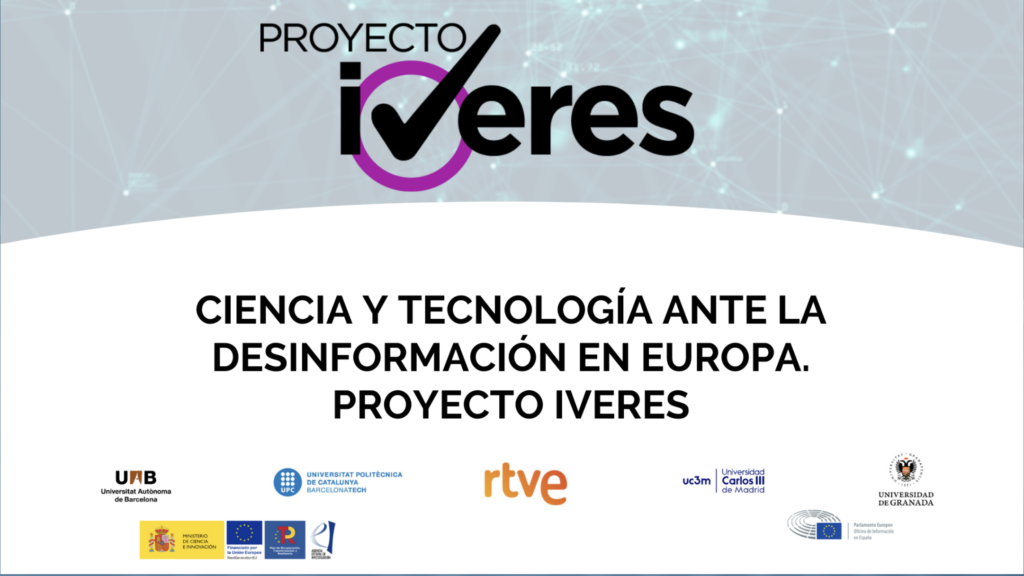
Proyecto IVERES: «Identificación, verificación y respuesta»
«IVERES es una colaboración de RTVE con la Universidad Autónoma de Barcelona con alianzas con otras instituciones y empresas públicas y privadas, como Monoceros, y de cátedras con las universidades públicas españolas Universidad Politécnica de Barcelona, Carlos III de Madrid y Universidad de Granada.
De forma coordinada trabaja la monitorización, definición de ontologías, archivado, verificación, detección de Deepfake en aspectos e imagen y video, síntesis profunda del habla e IA conversacional aplicada a la detección y a la verificación, colaboración, divulgación y transferencia de conocimiento teniendo como herramienta fundamental a la Inteligencia Artificial». (Cita)
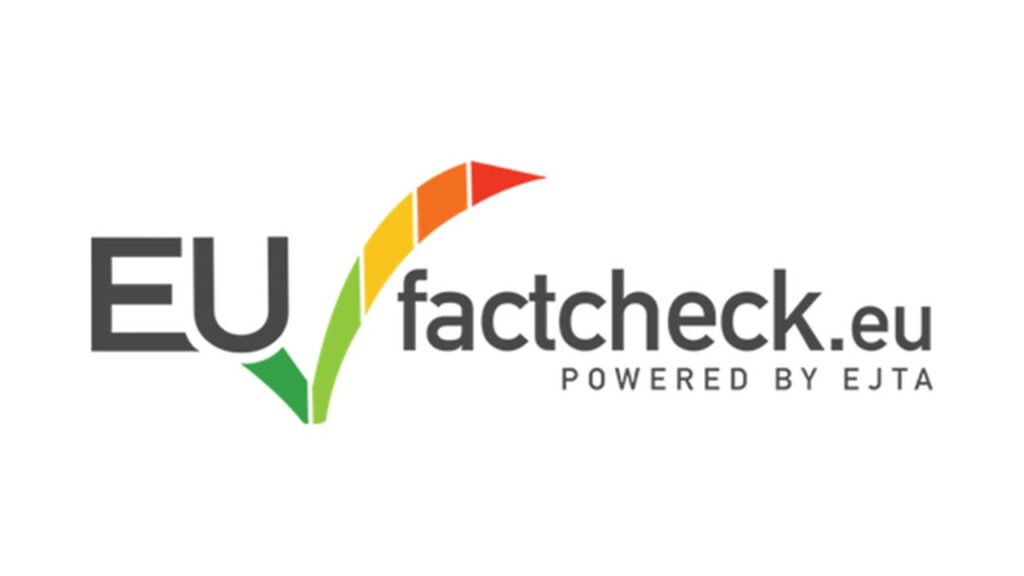
EUFactcheck
Proyecto de Fact-checking impulsado por la European Journalism Training Association (EJTA). Acceder a la página Web.
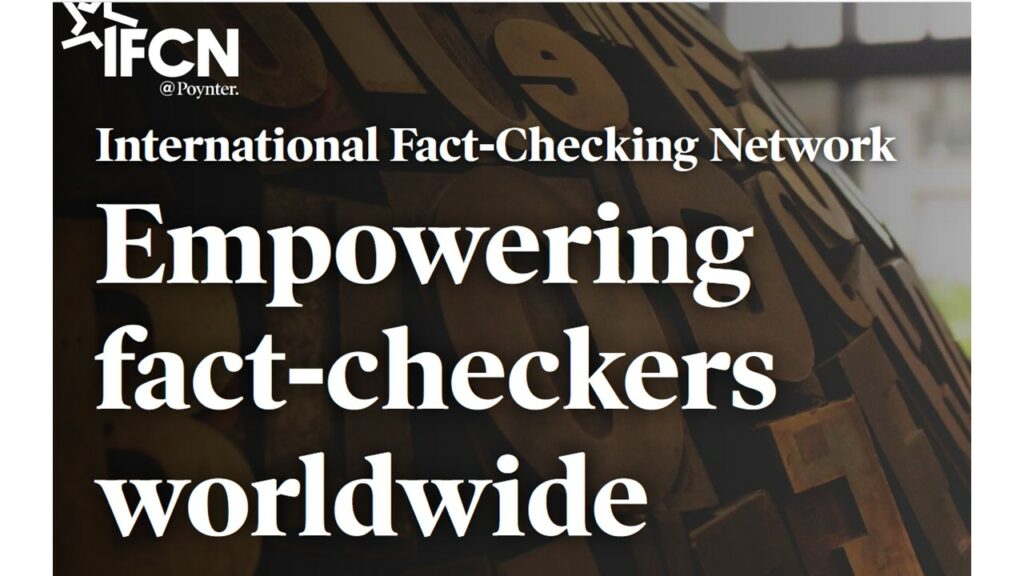
International Fact-Checking Network
«The International Fact-Checking Network (IFCN) at Poynter was launched in 2015 to bring together the growing community of fact-checkers around the world and advocates of factual information in the global fight against misinformation». (cita)
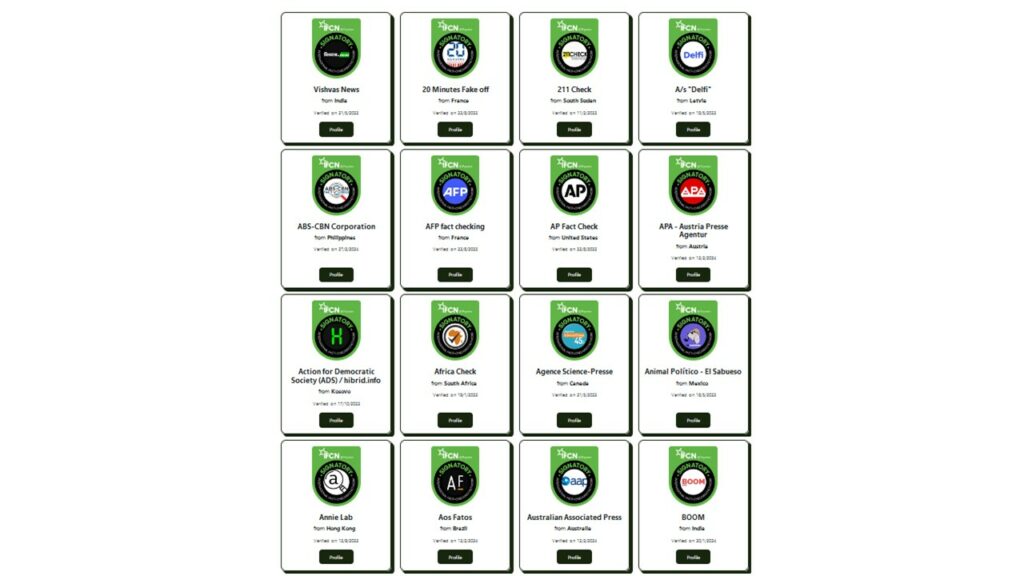
Signatories of the IFCN Code of Principles
Listado de verificadores revisado por la International Fact-Checking Network (IFCN).
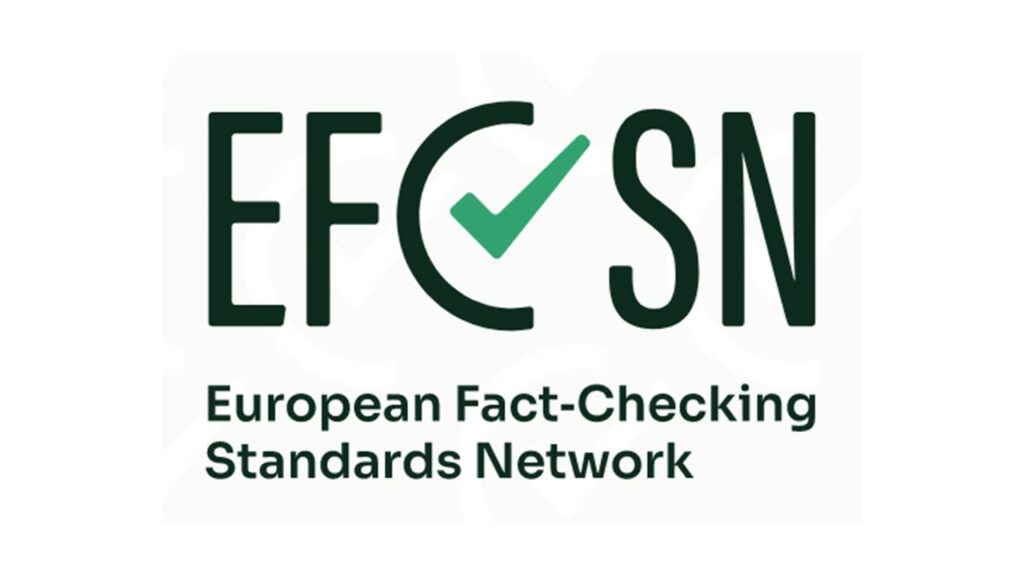
European Fact-Checking Standards Network
Acceder a la página Web.
Acceder al European Code of Standards for Independent Fact-Checking Organisations.

Image Verification Assistant
The Media Analysis, Verification and Retrieval group (MeVer), a research group in the Information Technologies Institute (ITI) of the Centre for Research and Technology Hellas (CERTH), emerged as a result of our research in a number of projects in the areas of social media mining, retrieval and multimodal Artificial Intelligence.
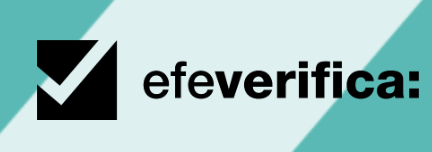
Efe verifica
Serrvicio de la Agencia Efe contra la desinformación. (Cita).
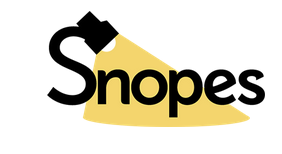
SNOPES
«Verficador basado en Inteligencia Artificial»Snopes got its start in 1994, investigating urban legends, hoaxes, and folklore. As demand for reliable fact checks grew, so did Snopes. Now it’s the oldest and largest fact-checking site online, widely regarded by journalists, folklorists, and readers as an invaluable research companion. Snopes.com is an independent publication under the company “Snopes Media Group Inc.,” which is owned by Chris Richmond and Drew Schoentrup (each owning 50%).
Snopes is a member of IFCN and in compliance with the International Fact Checking Network’s highest standards of combating misinformation online.» (Cita)
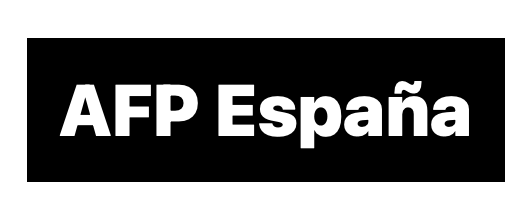
AFP Factual
AFP Factual es un departamento de la Agencia France-Presse.
«Los fact-checkers de la AFP investigan afirmaciones sospechosas que son virales, tienen impacto en la sociedad y son potencialmente dañinas para el público. Las afirmaciones que verificamos pueden aparecer en diversos formatos, como redes sociales, blogs, sitios web, aplicaciones de mensajería y otros foros de la esfera pública […] Decidimos qué afirmaciones verificar en función de su interés público y de nuestra capacidad para reunir pruebas suficientes para refutar la aseveración o aseveraciones que están circulando […] Prestamos especial atención a la desinformación que pueda poner en peligro la salud o la vida de las personas, perjudicar procesos democráticos o favorecer el discurso de odio y el racismo.» (Cita)
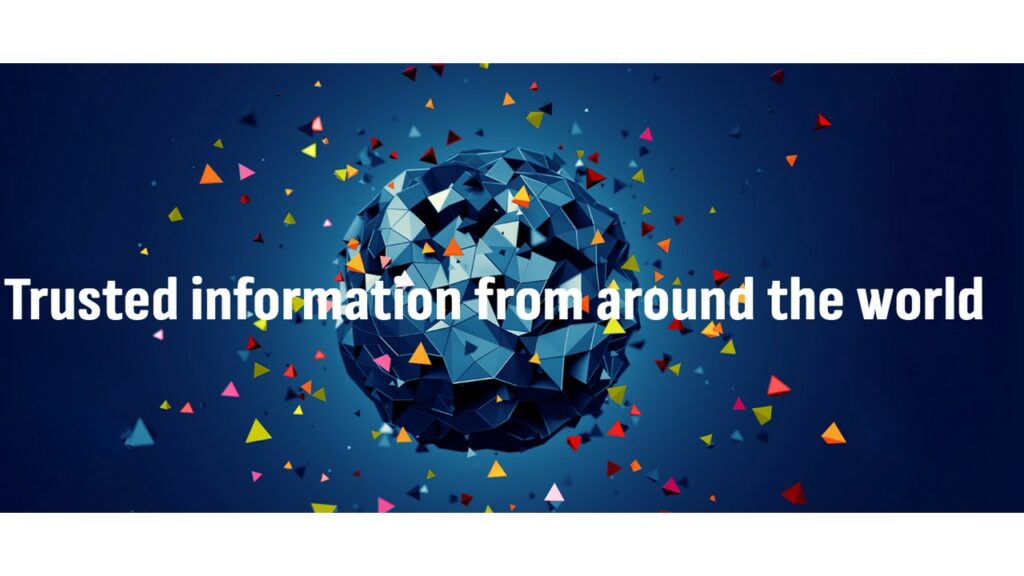
AI4trust
«The AI4TRUST project aims to combat misinformation and disinformation in the EU by creating a trust-based environment that integrates the automated monitoring of social and news media with advanced AI-based technologies to enhance the work of human fact-checkers.» (cita)
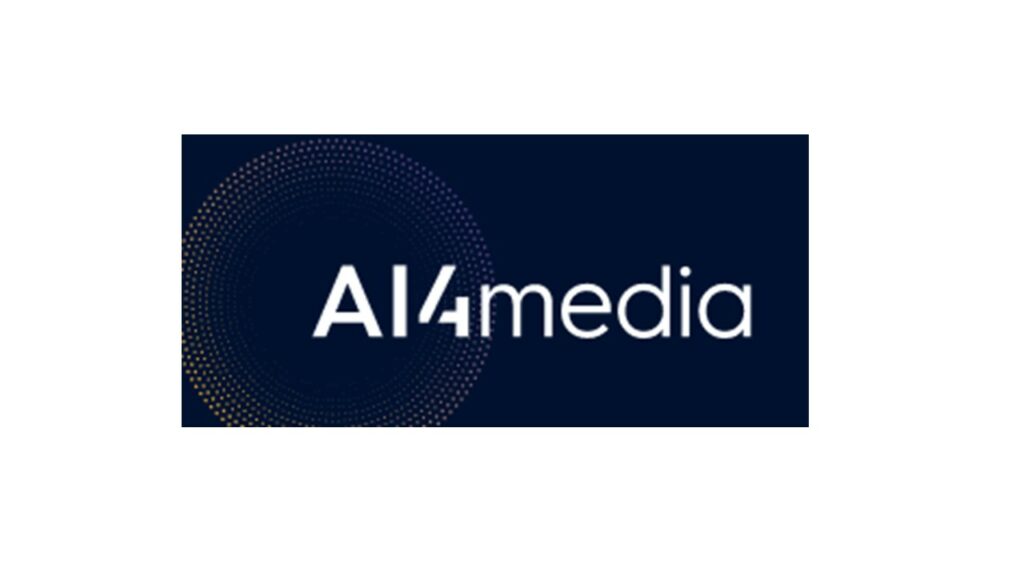
AI4Media
«funded under the European Union’s Horizon 2020 research and innovation programme, the project aspires to become a Centre of Excellence engaging a wide network of researchers across Europe and beyond, focusing on delivering the next generation of core AI advances and training to serve the Media sector, while ensuring that the European values of ethical and trustworthy AI are embedded in future AI deployments.» (cita)
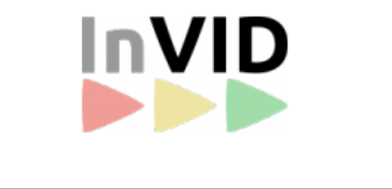
Invid (website)
«InVID will build a platform providing services to detect, authenticate and check the reliability and accuracy of newsworthy video files and video content spread via social media. This platform will enable novel newsroom applications for broadcasters, news agencies, web pure-players, newspapers and publishers to integrate social media content into their news output without struggling to know if they can trust the material or how they can reach the user to ask permission for re-use». (cita)
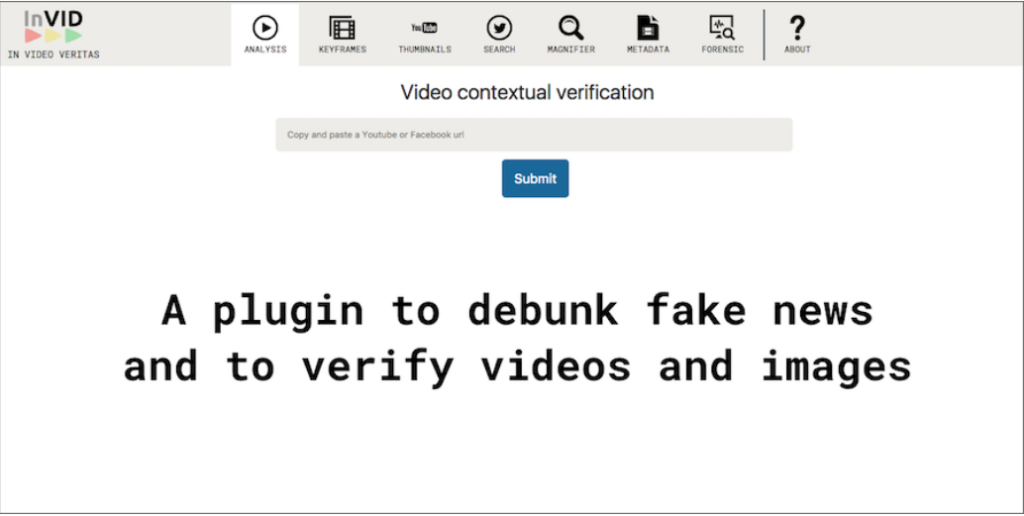
Invid (Plugin)
«This toolkit is provided by the InVID european project to help journalists to verify content on social networks (please note that external InVID services used via this interface, such as those presented under the Analysis and Keyframes tabs, are not open-sourced). It has been designed as a verification “Swiss army knife” helping journalists to save time and be more efficient in their fact-checking and debunking tasks on social networks especially when verifying videos and images». (cita)
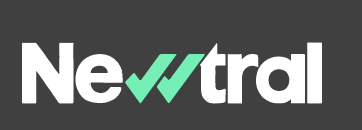
Newtral
Acceder a la página Web.
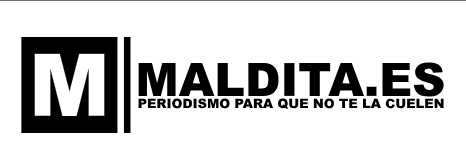
Maldita.es
Acceder a la página Web.

Desfake
Acceder a la página Web.
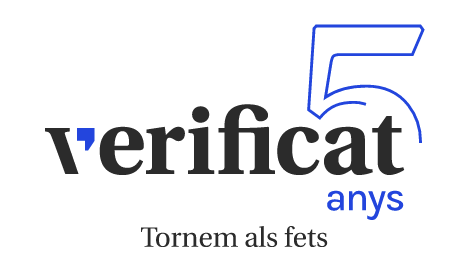
Verificat
Acceder a la página Web.
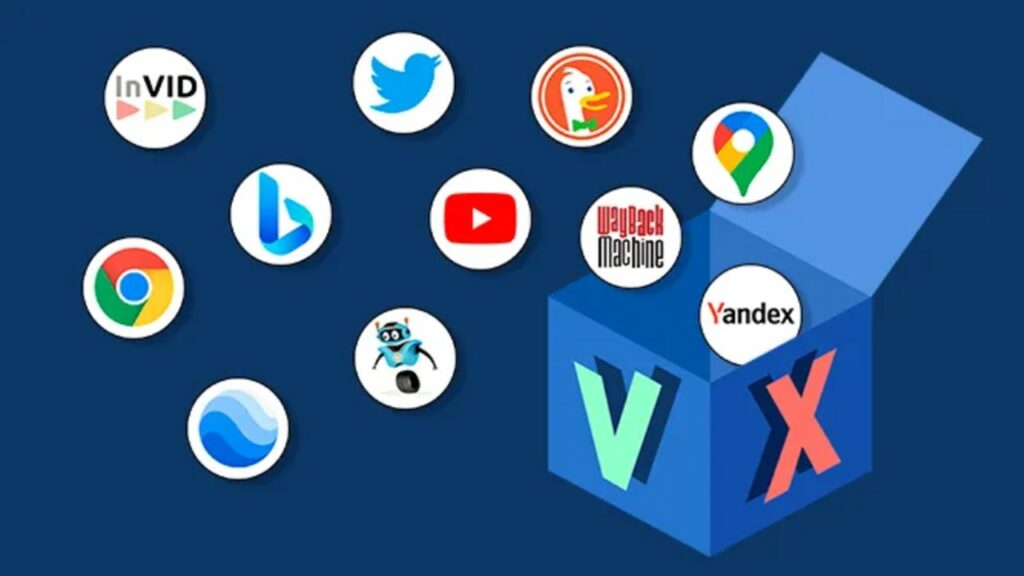
Herramientas para verificar y combatir fake news (Català)
Recopilación de recursos de verificación realizado por la Corporació Catalana de Mitjans Audiovisuals. Acceder a la página Web.

3CatInfo Verifica
Servicio de verificación (fact-checking) de los servicios informativos de 3Cat.
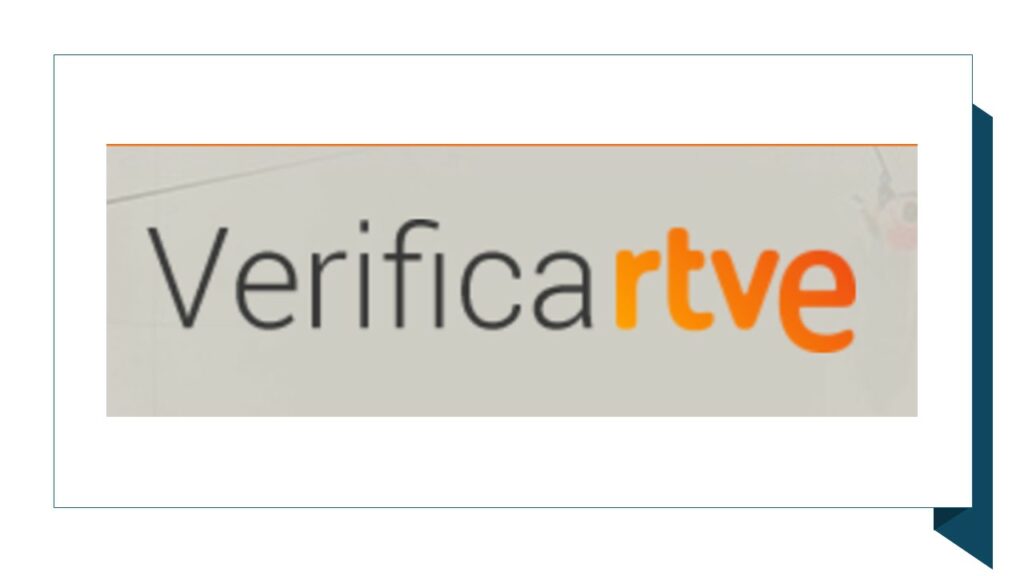
Verifica RTVE
Acceder a la página Web.
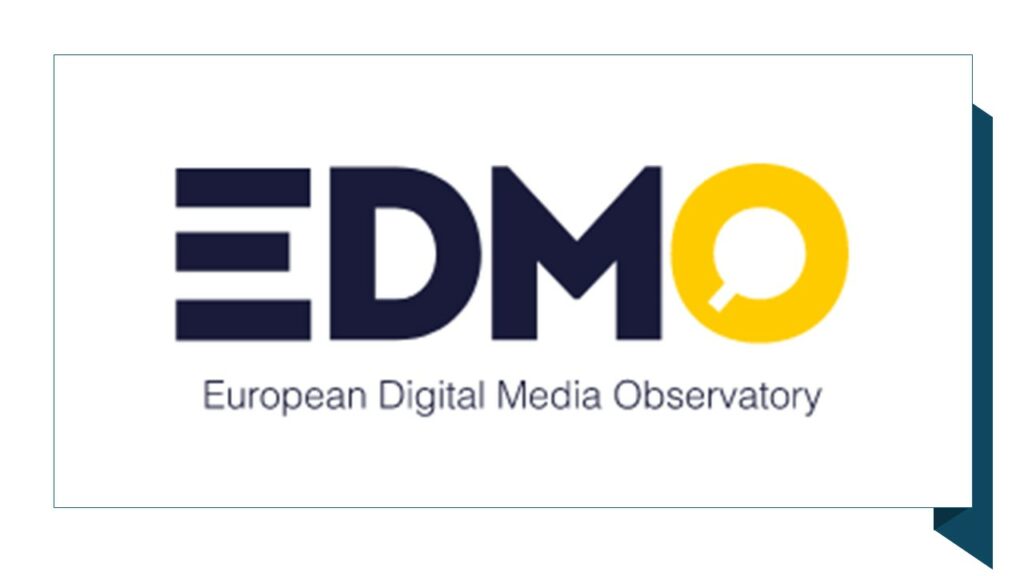
European Digital Media Observatory
Acceder a la página Web
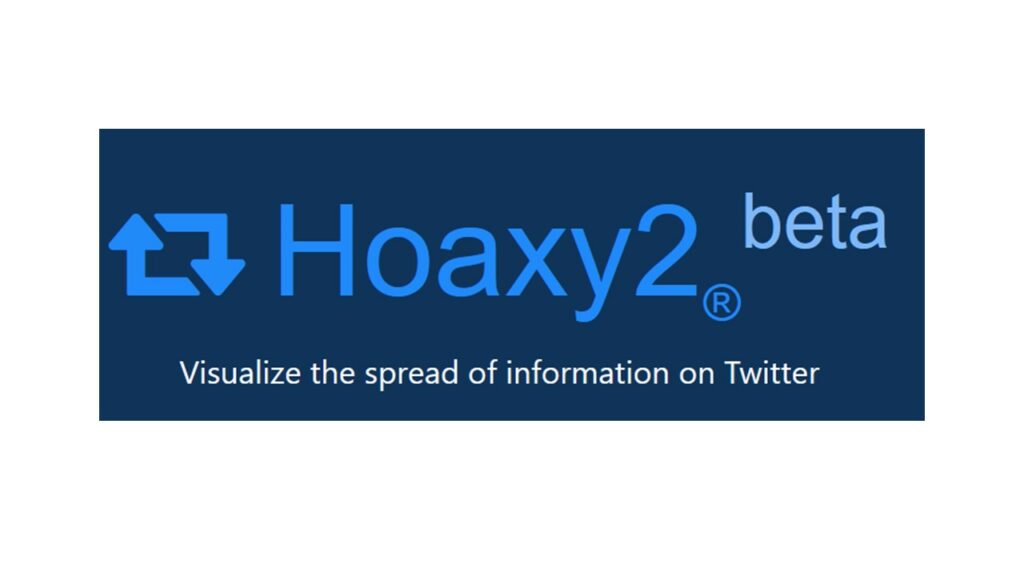
Hoaxy 2 (Beta)
«Hoaxy is a web-based tool that visualizes the spread of articles online. Hoaxy searches for claims and fact-checking going back to 2016. It tracks the sharing of links to stories from low-credibility sources and independent fact-checking organizations. It also calculates a bot score, which is a measure of the likely level of automation. Overall, the IU Observatory on Social Media is interested in studying and better understanding how information is shared online. They are also interested in studying how social media affects public discourse». (cita)
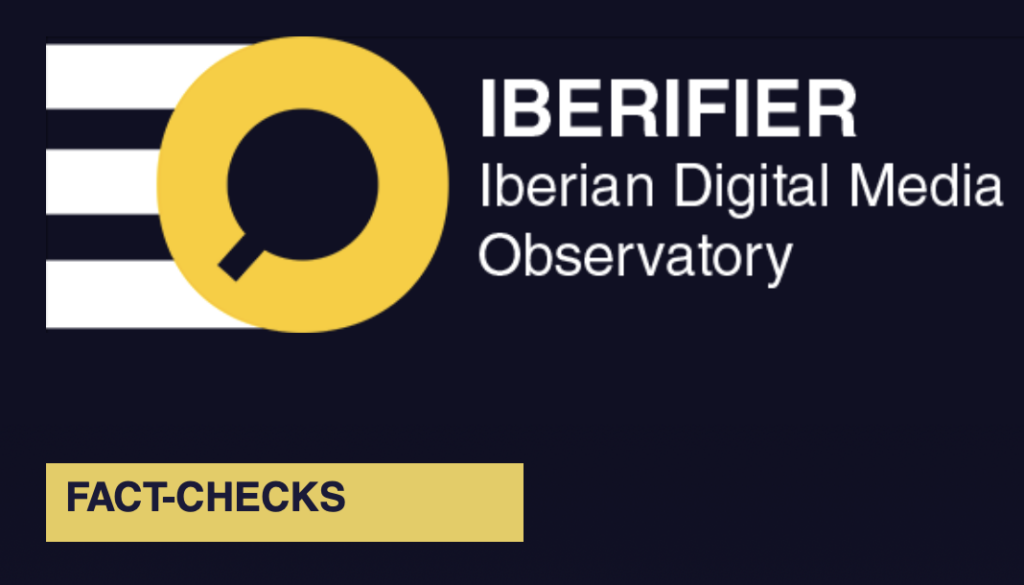
Iberifier (Iberian Digital Media Observatory)
«IBERIFIER es un observatorio de medios digitales de España y Portugal, impulsado por la Comisión Europea y vinculado al European Digital Media Observatory (EDMO). Coordinado desde la Universidad de Navarra, está integrado por doce universidades, cinco organizaciones de verificación y agencias de noticias, y seis centros de investigación multidisciplinar». (cita)

10 consells per a detectar una fake news (Català)
«La gran dificultat de les fake news és que tenen aparença de veritat. En l’actualitat, aquestes notícies falses circulen per la xarxa amb la intenció de manipular als internautes, conduint hàbilment a l’error per a desprestigiar». (cita)

Fake News Detector
«A deep learning network developed by CBMM computer scientists that detects patterns in the language of fake news […] This detector is unique in that it analyzes patterns in language found in the body of the news article, regardless of source or author». (cita)

12 Browser Extensions to Help You Detect and Avoid Fake News
«Browser extensions are among the tools that can restore confidence in digital news media. They can help readers detect and avoid the unreliable in favor of fact-driven, comparatively honest articles and publications». (cita)

Google Fact Check Explorer
«Fact Check Explorer es una herramienta de Google impulsada por la herramienta de marcado de verificación de datos (que ayuda a Google a detectar y mostrar una verificación de datos), en la que puedes encontrar verificaciones de datos que han sido investigadas por organizaciones independientes de alrededor del mundo. Es utilizado por periodistas, verificadores de hechos y cualquier persona que quiera llegar al fondo de una historia». (cita)
